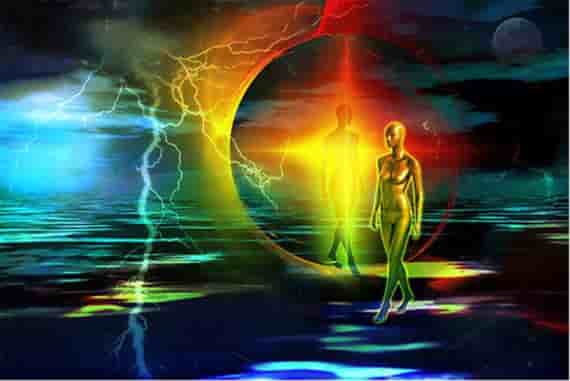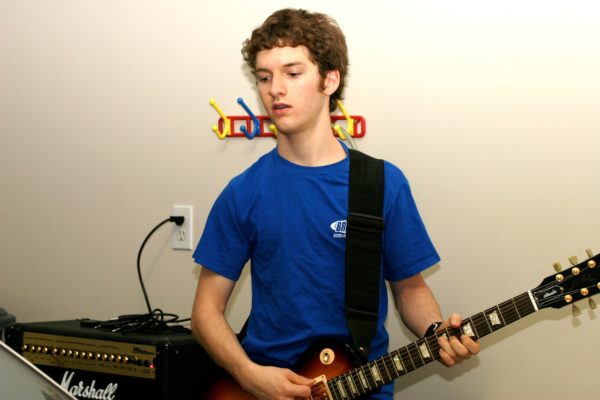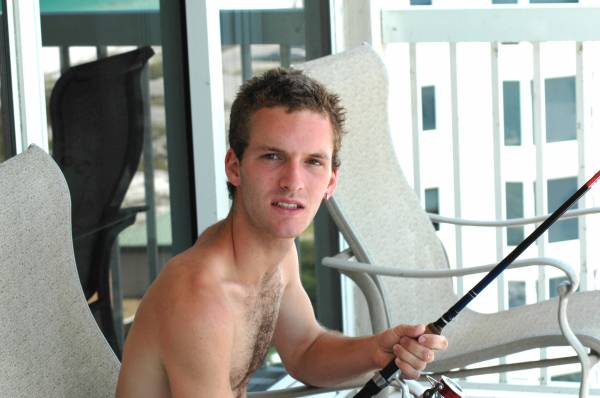Channeling Transcript
Me: Is our 3-D reality just a projection of our thoughts?
Erik: Yes, it’s all about projection of a focused intent, just like a movie projector would focus a movie on a screen. That’s how manifestation works, and that’s how prayer and affirmation works. And if enough people get together and think of the same thing, they can create that successfully.
Me: Okay. Can you tell me more about angelic sequences and numeric symbols. Are they cosmic, angelic—what’s their purpose? Take 11:11, for example. Almost every time I look at the clock by my bed, it’s 11:11. I hear these may be certain messages or prompts from our guides.
Erik: Yeah, before language developed that way we have it now, we used symbols and numbers. There’s a simplicity to them and a depth of meaning that you can’t get from a string of letters or words. Symbols can hold energetic patterns that can’t be created with words and sentences.
Me: Hm.
Erik: And these symbols that show up, Mom, they come from this universe, other universes—there’s such an expansive collection of races that we’ve shared information with, communicated with.
Me: Okay.
Erik: Here where I am, this is something that’s not taboo or imaginary. We’re at peace with several different races.
Me: Good!
Erik: We are definitely NOT alone, and these symbols—a lot of them—call to people on earth that used to be within these other races and within that time. A lot of us on earth are aliens ourselves.
Me: Funny you should say that, because sometimes I feel like an alien; I feel like I don’t belong in the human race. I don’t know why, but it just seems, uh, I just don’t feel comfortable here on the earthly plane.
Erik: You aren’t, Mom. And another thing about symbols and numbers, they’re not sequential like sentences are. The fact that you have time over there, uh, you have to have sequential, linear language: beginnings, endings, and that’s extremely limiting. We’ve placed those limits on ourselves.
Me: Well I guess we’ve had to have sequences to construct cause and effect scenarios. Isn’t that a good learning tool: “I did this, so this happened? I murdered this guy, so now I see what effect my actions have had on the lives of my family and his. So, I better learn about the sanctity of life.” Maybe a sequential existence has some sort of divine purpose.
Erik: No, Mom, that’s just how humans created it. It’s not how it was given to us, it’s what we did with it.
Me: Well, is there value in it or is it all bad?
Erik: No, I like to think there’s value in everything. It helps to create definitions; it helps us become more tangible, but I think that as a world, we’re growing out of that phase. Now again we’re looking at the purity of how life was given to us. That’s where we’re stuck. That’s where it hurts. What cause and effect shows us—it’s pretty limiting, it’s pretty judgmental, too. And your cause and effect will not be the same as the experience of cause and effect that I have. So when one person says, “When I do this, this happens,” it can’t necessarily apply to any other person but that one. That’s also where we kinda screw up, because we adopt it as a “general rule” or a “general belief” that everything stems from that base rule, when really that base rule might not fit you at all.
Me: Okay. But maybe for that one person it has value. Like if someone does something kind for someone, their life changes for the better. That’s a cause and effect.
Erik: Yeah, but Mom, you’re thinking that positive is better than negative.
Me: Um, yeah, of course!
Erik: That’s another judgment. Within negativity, a lot of incredible experiences can come. We have to remind ourselves, who are we to judge what is the better experience for that person and what isn’t? It can really throw you for a loop, because you have to ditch the idea that there’s right and wrong, good and bad—
Me: Yeah. I’m trying to follow.
Erik: Really, there’s ONLY good. Even the murder and the rape that happens up the street—that’s considered only good.
Me: Oh God, I just don’t know about this.
Erik: People wanna put up a huge fight for that, I know. They want to feel like there’s a wrong that has been done, but that action that’s been forced on somebody else, the wrong is, um—
(Pause)
Jamie: Yeah, see, you don’t have anymore words to use, do you, Erik?
I laugh.
Jamie: He has to use the words “good” or “bad” to describe this, but he’s trying to talk you out of the definition of good and bad. He’s stuck in his own hamster wheel!
Me (chuckling): Oh, no!
Jamie: He’s laughing. (Clapping) Way to go, Erik!!
Erik: But the person who did the action, they will learn from that either in that life structure or after they die.
Me: Okay.
Erik: But they’ll be the only ones who judge themselves. When we die, that force of attack or that force of emotion on somebody else is nonexistent. It’s just a lesson.
Me: Okay. Now, for example, if somebody helps a homeless person by cleaning them up, giving them clothes, helping them find a job—that’s not necessary good? Maybe they’re being robbed of an important experience? Maybe it’s good for them to experience misery?
Erik: Right! Or, what if you help him and he gets a new job and he becomes the president or manager of something, and then he wigs out from all of his responsibility and goes postal on their ass, killing everyone in the building.
Me: Oh, not good! Oops, I mean not “blank,” because I guess that word is out of my vocabulary now!
Erik: Well, you can use positive and negative as a variable. Like zero is the baseline of good, and then 0 to 50 is what we call more of a lower vibration or a negative which is an opposing side of “good.”
Me: Um hm.
Erik: And then 50 to 100 is a higher vibration of good. It’s the positive. So good is a spectrum that has variations, but the lower end of the spectrum—
Me: —is not evil or “bad.”
Erik: You got it, you got it, you got it!
Keep your fingers crossed that we win the 2011 Bloggies! The winners will be announced next Sunday evening! If we don’t win, I’m proud that we all tried and that Channeling Erik is a finalist! That’s damn huge!



